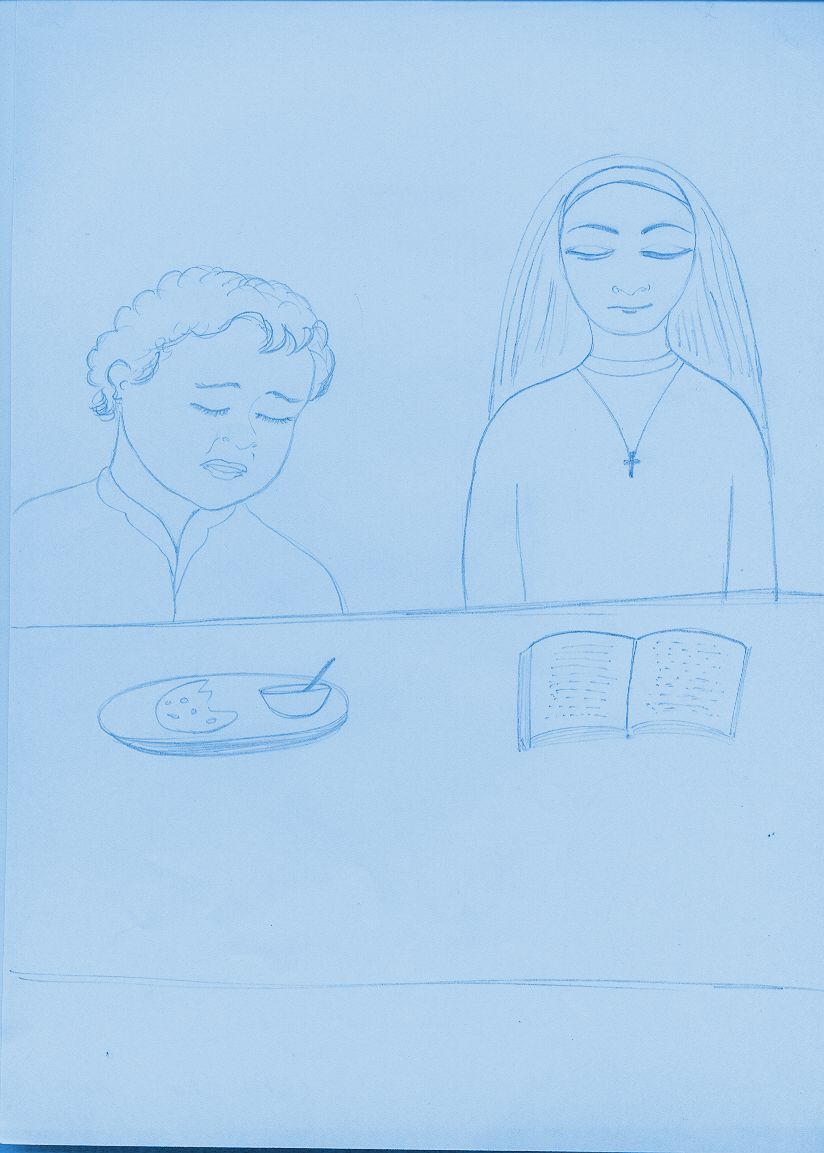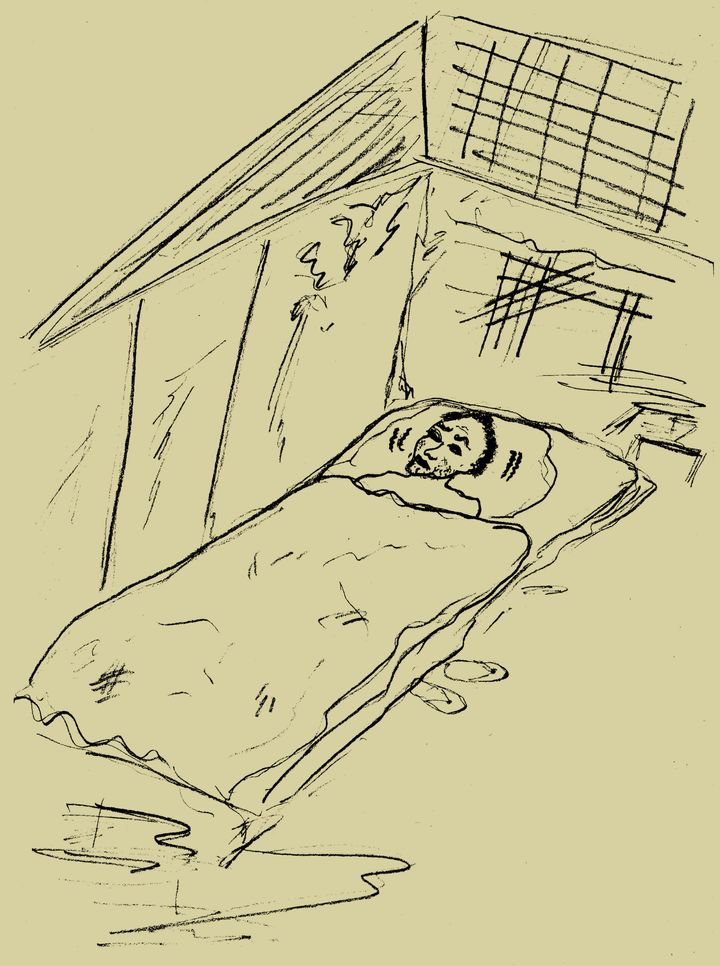Catch ’Em Young

A boy called Madan was sent to the Sacred Heart Convent, a boarding school at Amritsar, at the tender age of five. For sometime, he was the single boarder in the dormitory. A Christian nun looked after him. Later, four other children joined the boarding school. One day when Madan was six, the children were given an apple each to eat. Most of the children ate their apples at the dinning table. Madan took a bite and found it to be quite unsavoury. He requested the nun, “Sister, please allow me to go out with the other children to play. I’ll eat the apple outside.” The nun did not look too pleased but said, “Alright, make sure that you finish it.”
Sometime later, Sister saw a crow sitting on the terrace. It held a half eaten apple in its beak. She pursed her lips and sent for Madan. “Yes, Sister?” asked Madan innocently. “Did you finish the apple?” She asked sternly. “Yes, Sister,” said the boy. “Are you sure?” she asked. The stern face and formidable head dress of the nun was enough to intimidate the little boy. He said, “I didn’t like it. I threw it away.” He could not figure out how she had found out. She sat him down, next to her and said, “Madan, do you know how apples are made?” “Yes sister. Apples grow on trees.”
Sister said, “Let me tell you a story.” “Once upon a time a gardener planted an apple sapling on a hill. The plant was tiny and weak. The soil held it up and supported it. The Sun shone bright on it. The gardener watered it regularly and gave it manure. He hoed and weeded the soil around it, so that the sapling would get proper nourishment. He even put up a fence of barbed wire so that stray cattle would not eat up its leaves. The rains came and watered the plant profusely. It grew bigger and stronger. One year in spring, tiny flowers blossomed on it. Many flowers shed onto the ground; only a few survived. The gardener put in manure and watered it regularly. Tiny apples started forming. The gardener was jubilant. They were barely the size of a pea. Slowly the pea sized apples grew bigger. They were green in colour. As time passed, their skin started to become reddish. One day a picker came. He wore gloves. Carefully he removed all the apples from the tree and put them on specially designed papier mache’ trays. These trays were transferred to a wooden box. The box was then sealed with nails and sent by truck to Amritsar. A fruit seller brought the box to his shop. From there, I bought the box. I carefully washed each of the apples and put them on the dinning table for our children here. One of those, I gave to you. The gardener, the soil, the rain, the sun, the truck driver, the fruit seller and so many other forces worked together to bring that apple for you. It took close to nine months to make an apple. And it took you only a split second to toss it away!”
Madan was speechless. “I’m sorry Sister,” said Madan, his eyes full. Sister sent him to his dormitory. The incident continued to haunt Madan. A year later, one day at dinner time dal and vegetables were being served along with chapattis to the students. That particular variety of dal was Madan’s favourite. He asked for a double helping. When they started eating, Madan realized that the dal was smoked. It smelt foul and tasted awful. It was absolutely unpalatable. Madan’s olfactory senses were very sharp. He just couldn’t eat it. He cursed himself for taking the double helping.
One by one the other children finished their meal and left. Madan was left alone. Sister came and sat next to him. “Madan, why aren’t you eating?” “Sister, the dal is burnt, I can’t eat it.” “Madan, you asked for a double helping. You should have kept it at that measure. Now, you’ll have to finish it.” “I can’t eat it Sister. I’ll be sick if I do.” “You’ll have to eat it, whatever it is,” she said firmly. Madan was defiant. Sister was firm as a rock. It was a cold winter night. The stone floor of the dining room was freezing. It started to rain. The chill increased. Sister sat next to Madan, reading her Bible. Madan was sulking. “Please, sister,” he pleaded. “No!” she said sharply.
Two hours later, Madan said in a weary voice, “Sister, if you will heat this for me, I’ll eat it.” She heated the food and put it before him. Madan ate it. There was no choice; he had to. But the lesson he learnt from this, left a deep impression on his tender mind. He never wasted a morsel of food in his life.
Sometimes we let off our children under the garb of love. But discipline is of utmost importance, especially in childhood and adolescence. Child psychologists’ today advocate that children should never be punished, for it damages their self-esteem! But the age old maxim of ‘spare the rod and spoil the child’ still holds a lot of meaning. If teachers and parents abstain from disciplining children surely the neighbours are not going to step in! Discipline that is administered at an age when the mind is still impressionable runs deep. What can you write on a slate that is already full of scribbles?
Incidentally, little Madan grew up to be a lawyer and then a judge. Justice Madan Mohan Punchhi retired from the Supreme Court as the Chief Justice of India.


Comments ()